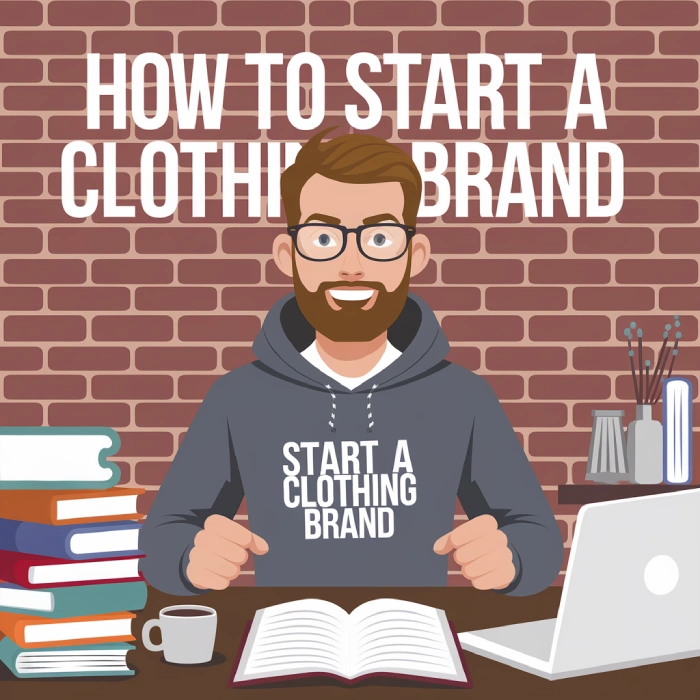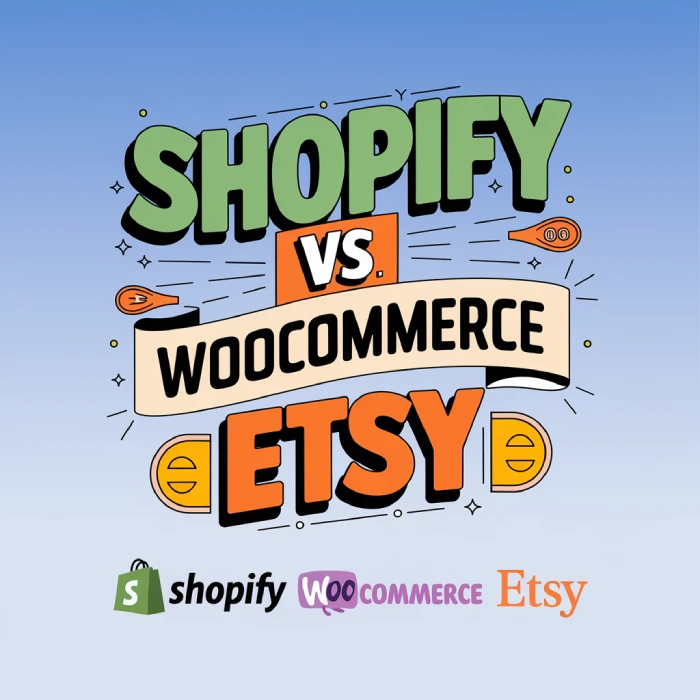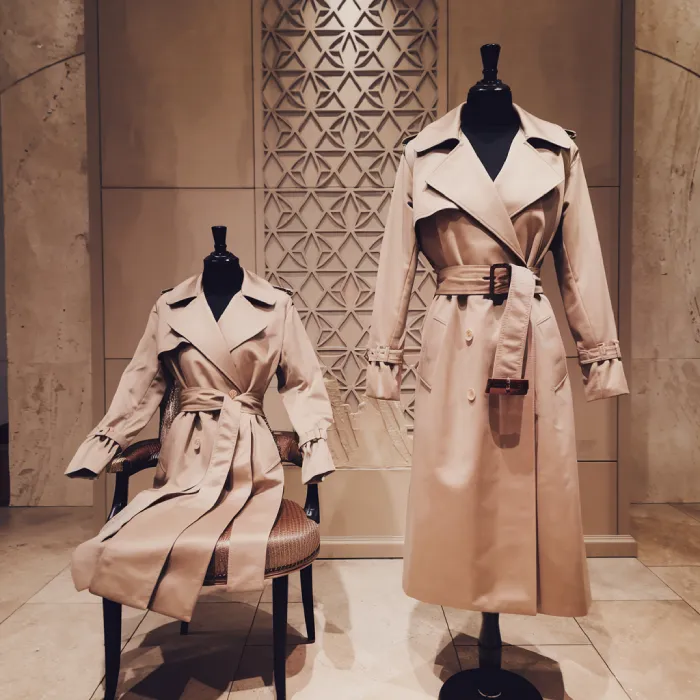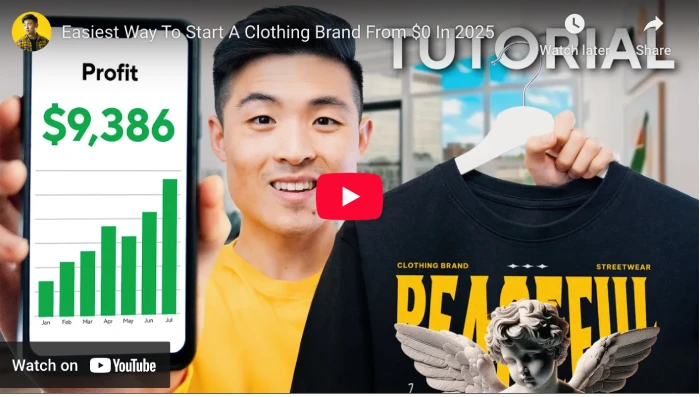Starting a clothing brand is an exciting and rewarding journey, but it requires careful planning, creativity, and business acumen.
Whether you’re passionate about streetwear, luxury fashion, or sustainable clothing, this guide will take you through every step of launching a successful clothing brand.
Let’s dive in!
Why Start a Clothing Brand?

The global fashion industry is worth over $1.5 trillion, and there’s always room for innovative brands that bring fresh ideas to the market.
A clothing brand allows you to express your creativity, build a community, and generate significant income.
Is Starting a Clothing Brand Profitable?
Yes! Many clothing brands enjoy 30-60% profit margins. However, success depends on branding, pricing, marketing, and customer loyalty.
- Step 1: Research and Validate Your Idea
- Step 2: Develop Your Brand Identity
- Step 3: Creating Your First Collection
- Step 4: Setting Up Production & Logistics
- Step 5: Pricing & Profitability Strategy
- Step 6: Setting Up Your Online Store
- Step 7: Marketing & Brand Awareness
- Step 8: Selling Beyond Your Website
- Step 9: Scaling Your Clothing Brand
Research and Validate Your Idea
Identifying Your Niche
Choosing a niche is critical for standing out. Consider:
- Streetwear (e.g., Supreme, Off-White)
- Luxury Fashion (e.g., Gucci, Balenciaga)
- Sustainable Clothing (e.g., Patagonia, Pangaia)
- Athleisure (e.g., Gymshark, Lululemon)
- Print-on-Demand & Custom Apparel
Analyzing the Market and Competition
Use tools like Google Trends, SEMrush, and Ahrefs to research demand and analyze competitors’ strengths and weaknesses.
Finding Your Unique Selling Proposition (USP)
Ask yourself: Why should customers choose your brand?
Your USP could be high-quality materials, affordability, exclusivity, or sustainability.
Develop Your Brand Identity
Choosing a Brand Name & Domain Name
Your name should be memorable, brandable, and available as a domain. Examples:
- Unique: Cilky.com
- Minimalist: TokyoMen.com
- Sustainable: Modony.com
To find the perfect clothing brand name for your business, check out Namoxy’s curated product category for premium names.
For a brandable domain name, visit Namoxy, a trusted marketplace for high-quality domains.
Designing a Memorable Logo & Branding Elements
Crafting a Brand Story & Mission Statement
Your brand story should resonate with customers and convey your mission.
Creating Your First Collection
Choosing Fabric, Materials & Sustainable Options
Decide between:
- Organic Cotton (Eco-friendly, durable)
- Bamboo Fabric (Soft, sustainable)
- Polyester Blends (Affordable, flexible)
Working with Manufacturers vs. DIY Production
Options:
- Manufacturers (Better for scaling; MOQ required)
- DIY Production (Handmade, small-scale brands)
- Print-on-Demand (No inventory; great for startups)
Clothing Design & Tech Packs
A tech pack contains sketches, materials, measurements, and production details—essential for manufacturers.
Setting Up Production & Logistics
How to Find Reliable Clothing Manufacturers
Use platforms like Alibaba, Makers Row, and Sewport. Always request samples before bulk orders.
Understanding MOQ (Minimum Order Quantity) & Costs
Manufacturers often have MOQ requirements (e.g., 100-500 pieces per design). Costs vary based on fabric, complexity, and branding elements.
Packaging & Shipping Considerations
Invest in eco-friendly packaging and partner with reliable shipping companies like DHL, FedEx, or UPS.
Pricing & Profitability Strategy
How to Price Your Products for Profit?
Formula:
Retail Price = Cost Per Unit × 2-4 (markup factor)
Example:
Production cost: $10 per item
Selling price: $30-$50 (300-500% markup)
Understanding Cost Per Unit (CPU) & Profit Margins
Track all costs (fabric, labor, shipping, marketing) to ensure profitability.
Setting Up Your Online Store
Choosing the Best E-commerce Platform

Popular platforms:
- Shopify (Best for beginners)
- WooCommerce (Flexible, self-hosted)
- Etsy (Best for handmade, print-on-demand)
Optimizing Your Website for SEO & User Experience
- Use SEO-friendly product descriptions
- Optimize site speed & mobile usability
- Add secure payment options
Marketing & Brand Awareness
How to Build a Strong Social Media Presence?
- Instagram & TikTok for visual content
- Facebook & Pinterest for ads & inspiration
- YouTube & Blogs for storytelling
Influencer Marketing & Collaborations
Partner with micro-influencers in your niche for affordable brand exposure.
Paid Advertising (Google Ads, Facebook Ads, TikTok Ads)
Set up targeted campaigns to reach fashion-conscious buyers.
Mastering Digital Marketing for Your Brand
To develop expert-level digital marketing skills and grow your brand online, check out DSDM, a leading platform for digital marketing education.
Selling Beyond Your Website
Getting Your Clothing Brand into Retail Stores
Pitch your brand to boutiques and department stores like Nordstrom, ASOS Marketplace.
Using Marketplaces like Amazon, ASOS, or Zalando
Expand reach by listing on fashion marketplaces.
Scaling Your Clothing Brand

Expanding Product Lines & Collection Drops
Release seasonal collections and limited-edition items to create demand.
Working with Investors & Scaling Production
Consider venture capital, crowdfunding (Kickstarter), or self-investment.
International Shipping & Global Expansion
Use warehousing solutions like Amazon FBA or third-party logistics.
Common Challenges & How to Overcome Them
Managing Manufacturing Delays
Have backup suppliers to avoid production disruptions.
Dealing with Low Sales & Brand Awareness
Refine marketing strategy, SEO, and influencer partnerships.
Handling Customer Returns & Complaints
Offer hassle-free returns & responsive customer service.
Frequently Asked Questions (FAQs)
- Small-scale: $500 – $5,000
- Mid-range: $5,000 – $20,000
- Large-scale: $20,000+
Yes! Use print-on-demand or small-batch production.
Profit margins range 30-60% depending on your business model.
Conclusion
Starting a clothing brand requires passion, creativity, and a solid business strategy.
Follow these steps, stay consistent, and watch your brand grow into a successful fashion label.



